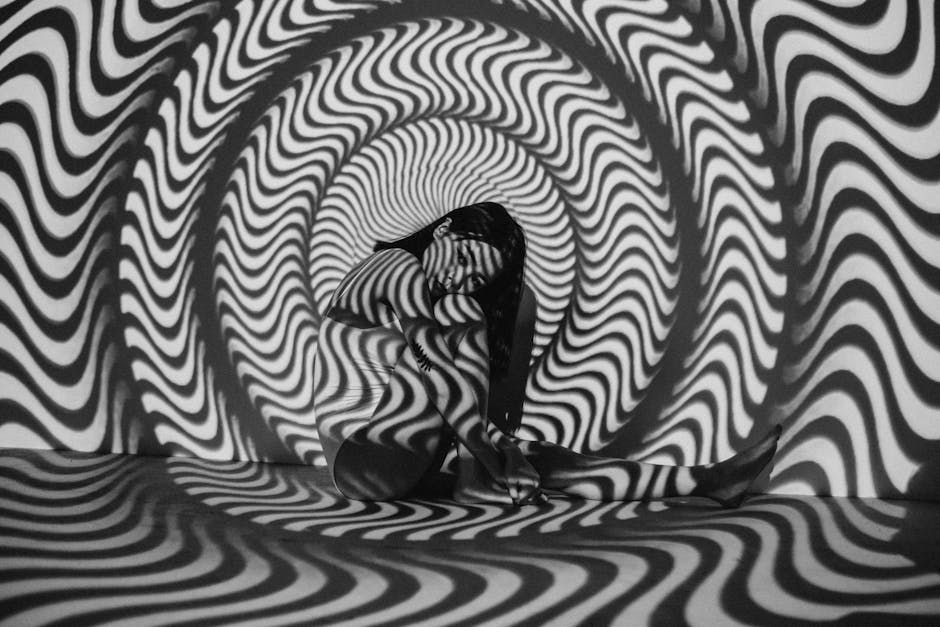Hypnosis, a therapeutic technique often shrouded in mystery and misconception, can indeed provide relief for phobias and deep-seated fears. This blog post will delve into the fascinating world of hypnotherapy, shedding light on how it can help individuals overcome their fears and live more fulfilling lives. So, why should you keep reading? Because understanding the power of hypnosis could be your first step towards conquering your own fears.
Key Takeaways
- Hypnosis can effectively treat a variety of phobias by accessing the subconscious mind.
- Hypnotherapy can change negative thought patterns and responses associated with specific fears.
- Real-life success stories demonstrate the efficacy of hypnotherapy in treating phobias.
- Hypnotherapy addresses the root causes of fear, providing long-term benefits for phobia sufferers.
Introduction to Hypnosis for Phobia Relief
Definition of Hypnosis
Hypnosis is a state of focused attention and heightened suggestibility, during which positive suggestions and guided imagery are used to help individuals deal with a variety of concerns and issues. It’s a tool that can help people explore painful thoughts, feelings, and memories they might have hidden from their conscious minds (source).
Overview of Phobias and Deep-seated Fears
Phobias are intense, irrational fears of specific things or situations that pose little or no real danger. They’re more than just common fears; they can cause severe distress and can interfere with a person’s ability to function normally. Deep-seated fears, on the other hand, are fears that have been ingrained in a person’s psyche for a long time, often since childhood.

How Hypnosis Works to Alleviate Phobias
Accessing the Subconscious Mind
Hypnosis works by accessing the subconscious mind, the part of our mind that controls our fears, habits, and automatic responses. By tapping into this part of the mind, hypnotherapists can help individuals confront and manage their fears in a safe and controlled environment.
Changing Negative Thought Patterns and Responses
Through hypnosis, individuals can learn to change their negative thought patterns and responses associated with their phobias. This is done by replacing these negative associations with positive ones, thereby reducing the fear response (source).

Specific Phobias Treated with Hypnotherapy
Trypophobia
Understanding Trypophobia
Trypophobia is the fear of clusters of small holes or bumps. It’s not officially recognized as a disorder, but it can cause severe discomfort and anxiety in those who have it.
Hypnotherapy Techniques Used
Hypnotherapy for trypophobia often involves techniques such as desensitization, where the individual is gradually exposed to images of small holes or bumps in a controlled environment until their fear response decreases.
Emetophobia
Understanding Emetophobia
Emetophobia is the fear of vomiting. This can include fear of vomiting in public, fear of seeing vomit, fear of watching the action of vomiting or fear of being nauseated.
Hypnotherapy Techniques Used
Hypnotherapy for emetophobia often involves techniques such as cognitive restructuring, where the individual’s irrational beliefs about vomiting are challenged and replaced with more rational ones.
Aerophobia
Understanding Aerophobia
Aerophobia is the fear of flying. This can cause significant anxiety and panic attacks, and can prevent individuals from traveling by air.
Hypnotherapy Techniques Used
Hypnotherapy for aerophobia often involves techniques such as visualization, where the individual is guided to imagine themselves flying in a calm and controlled manner (source).
Dental Phobia
Addressing General Dental Anxiety
Dental phobia, or dentophobia, is the fear of dentistry and of receiving dental care. It’s a common phobia and can lead to poor oral health if not addressed.
Overcoming Needle Phobia
Needle phobia, or trypanophobia, is a fear of needles and injections. It’s often associated with dental phobia, as many dental procedures involve the use of needles.
Hypnotherapy for dental and needle phobia often involves techniques such as progressive muscle relaxation and guided imagery, where the individual is taught to relax their body and imagine themselves undergoing dental procedures in a calm and controlled manner (source).

Success Stories and Techniques
Overcoming Trypophobia with Hypnotherapy
Path to Healing and Empowerment
Many individuals have successfully overcome their trypophobia through hypnotherapy. By confronting their fear in a safe and controlled environment, they have been able to reduce their fear response and live more comfortably.
Overcoming the Fear of Vomiting with Hypnotherapy
Hypnotherapy has also been successful in helping individuals overcome their fear of vomiting. By changing their negative thought patterns and responses associated with vomiting, they have been able to reduce their anxiety and live more freely.
Conquering Aerophobia with Hypnotherapy
Real-life Success Stories
There are many real-life success stories of individuals overcoming their fear of flying through hypnotherapy. By visualizing themselves flying in a calm and controlled manner, they have been able to conquer their fear and travel by air without anxiety (source).
The Role of Hypnotherapy in Phobia Treatment
Addressing the Root Causes of Fear
One of the key benefits of hypnotherapy is that it addresses the root causes of fear, rather than just the symptoms. By understanding why the fear developed in the first place, individuals can work towards resolving these underlying issues and reducing their fear response.
Long-term Benefits of Hypnotherapy for Phobia Sufferers
Hypnotherapy provides long-term benefits for phobia sufferers. By learning to manage their fears, individuals can improve their quality of life and reduce their anxiety. They can also gain a greater sense of control over their fears, which can boost their self-confidence and self-esteem.
In conclusion, hypnosis can indeed provide relief for phobias and deep-seated fears. By accessing the subconscious mind and changing negative thought patterns and responses, hypnotherapy can help individuals overcome their fears and live more fulfilling lives. If you’re interested in learning more about hypnosis and its potential benefits, check out our guide on hypnotherapy and our articles on hypnosis for anxiety reduction and hypnosis for stress reduction and anxiety management.
Soothing Your Mind: Can Hypnosis Help With Phobias And Deep-seated Fears? Dive Into Our FAQ!
What exactly is hypnosis, and how does it work?
Hypnosis is a trance-like mental state in which individuals have heightened focus, concentration, and suggestibility. It is often compared to daydreaming or the feeling of losing oneself in a book or movie. During hypnosis, a trained therapist can guide someone to relax and focus their mind, which can make them more open to suggestions. This state of deep relaxation and focused attention allows the therapist to suggest ideas, concepts, and lifestyle adaptations to the client, which can be particularly helpful in overcoming phobias and fears.
Can hypnosis really help with phobias and deep-seated fears?
Yes, hypnosis can be an effective tool in helping individuals overcome phobias and deep-seated fears. It works by accessing the subconscious mind, where these fears are often rooted. Through hypnosis, a therapist can help an individual confront these fears in a safe and controlled environment, gradually reducing the fear’s intensity. It’s not a magic cure, but many people have found significant relief from their phobias through hypnosis.
Is hypnosis safe?
Hypnosis is generally considered safe when conducted by a trained and certified hypnotherapist. It is a non-invasive method of therapy with few side effects. However, it’s not suitable for everyone, including those with severe mental health issues or those under the influence of drugs or alcohol. It’s important to consult with a healthcare provider before starting any new therapy, including hypnosis.
How many sessions will I need to see improvements?
The number of hypnosis sessions needed varies from person to person, depending on the severity of the phobia or fear and the individual’s responsiveness to hypnosis. Some people may see improvements after just one session, while others may need several sessions over a period of weeks or months. A qualified hypnotherapist can provide a more personalized estimate after an initial consultation.
Can hypnosis erase my fears completely?
While hypnosis can significantly reduce or even eliminate the symptoms of phobias and fears for some individuals, it does not ‘erase’ these fears from the mind. Instead, it helps individuals manage their fears more effectively, reducing the impact on their daily lives. The goal is not to forget the fear but to change the way one reacts to it.
What happens during a hypnosis session for phobias?
During a hypnosis session for phobias, the hypnotherapist will first discuss your specific fears and goals for the session. Then, they will guide you into a relaxed state and may use various techniques to help you face your fear in a controlled, imaginary environment. The therapist might also suggest new ways of thinking about the feared object or situation, aiming to reduce fear responses. The session typically ends with bringing you out of the hypnotic state and discussing the experience.
Are the effects of hypnosis for phobias long-lasting?
The effects of hypnosis on phobias can be long-lasting for many individuals, especially with reinforcement techniques and follow-up sessions. The success of hypnosis in providing long-term relief from phobias depends on various factors, including the individual’s commitment to change, the severity of the phobia, and the skill of the hypnotherapist. Some people may also benefit from periodic ‘booster’ sessions to maintain the effects.
Can I perform self-hypnosis to overcome my fears?
Self-hypnosis is a skill that can be learned with practice and can be an effective way to manage phobias and fears for some individuals. It involves guiding yourself into a hypnotic state and then using pre-determined phrases or suggestions to help manage your fears. While self-hypnosis can be beneficial, working with a trained hypnotherapist initially can provide a solid foundation and personalized techniques tailored to your specific needs.



